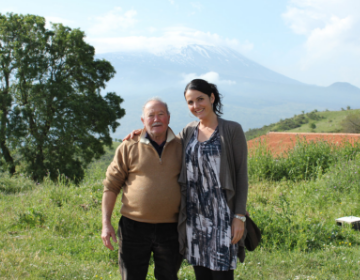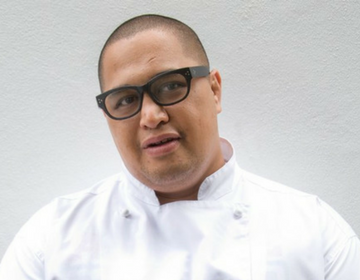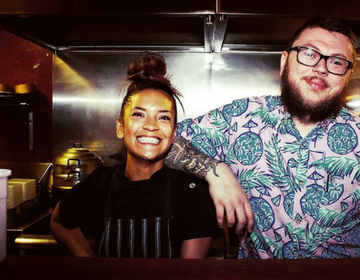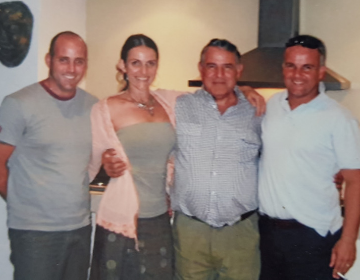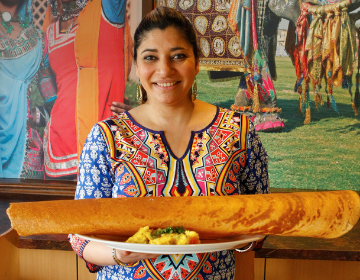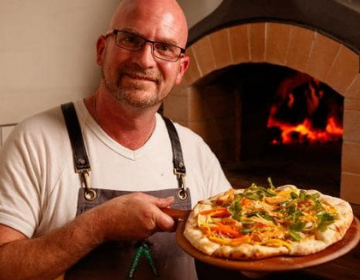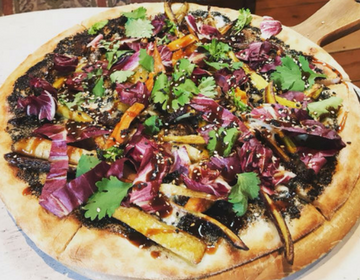Author of acclaimed cookbook and food blog Ostro, Julia Busuttil Nishimura shares her insights on the power of food and the beauty of slowing down and cooking with simple, fresh ingredients.
Images: Julia Busuttil Nishimura and Lilli Waters
- Your cookbook, Ostro is all about slowing down and cooking with simple ingredients. What is it about this style of food that so many of us have fallen in love with?
I think for many of us, cooking can be just another task for the day – something that has to get done. Although I definitely have those moments, mostly for me, cooking with simple ingredients and with joy, calms me down. For me it’s how I find slowness in a busy day, mindfulness and nourishment.
- You have previously lived and worked in Italy. How did this influence your cooking style and who was your greatest influence in the kitchen?
I have travelled to Italy several times and lived in Southern Tuscany where I worked for a family on the most beautiful property. I suppose the way they cooked and thought about food was similar to how I grew up, but seeing it again as an adult awoke something in me that had been forgotten a little. They cared so much about the origins of the ingredients, there was so much trust in the makers, suppliers and artisans and the cooking itself always seemed effortless but with incredibly satisfying results. There was never any fussing around or overcomplicating food – you could always taste each ingredient for what it was – there was always so much respect. Their generosity left a big impression on me. Combined with many food writers who I admire, most notably Rose Gray and Ruth Rogers of the River Cafe, this period of my life living in Italy shaped how I cook and think about food today.
- What is the greatest difference between Italian food culture and how it is here in Australia?
I think there are many similarities – we have such wonderful produce here in Australia too and more and more it is being celebrated like it always has been in Italy. I think the culture of the way people shop is vastly different though. While supermercati are of course popular there, the markets in Italy are phenomenal and hold great historical and cultural significance. Similarly, there are so many small shops selling very particular products – the food of Italy is incredibly regional.
- If you had to choose just one recipe you learnt to prepare in Italy to share with us, what would it be?
I learnt to cook a dish called Maiale al latte which is pork cooked in milk. It’s perfumed with garlic, sage and lemon peel and the milk bubbles away until the pork is incredibly tender and only golden curds remain. It is one of those dishes that surprise people – so flavourful and just from a handful of ingredients. Served with some potatoes and a leafy salad, it’s just perfect.
- You have Maltese heritage and your husband is Japanese, how does this diversity influence your cooking?
My Maltese heritage has profoundly impacted my cooking and I’ve always discovered my own family stories through recipes or particular ingredients. Cooking and eating Japanese food regularly has also had a great influence on the way I cook and eat. The way Nori cooks is incredibly thoughtful and so much care goes in to each element, another reminder to slow down a little in the kitchen. Our daily food is incredibly diverse and reflects both of our upbringings but also other places in the world where we have lived or travelled.
- Why do you believe food has the power to bring people together?
The act of cooking and eating together is very powerful – sharing stories and memories through food is such a common experience and can help build a sense of community and shared experiences.
- How do you think food and the food industry has changed over the last 10 years?
I think the food industry is slowly changing however there is still lots of room for progress. I have worked with some amazing cooks and chefs who have arrived in Australia as refugees and asylum seekers. Many of them have dreams of opening a restaurant again here or pursuing some sort of food enterprise. I hope that the avenues to do this become more open in the future. There are so many food businesses who are operating with social responsibility as a core focus and more of this would be incredible.
- How will you be celebrating A Taste of Harmony this year and what will you be bringing along?
I’ll be celebrating A Taste of Harmony with my colleagues at work – we are a teaching staff of over 30 and we’ll all be sitting down to a shared lunch in the staff room to celebrate. I’ll be bringing a savoury ricotta pie called Torta tal-irkotta in Maltese.
Find out more about Julia and Ostro here:
Click here to learn more about A Taste of Harmony and how your workplace can register to get involved.



